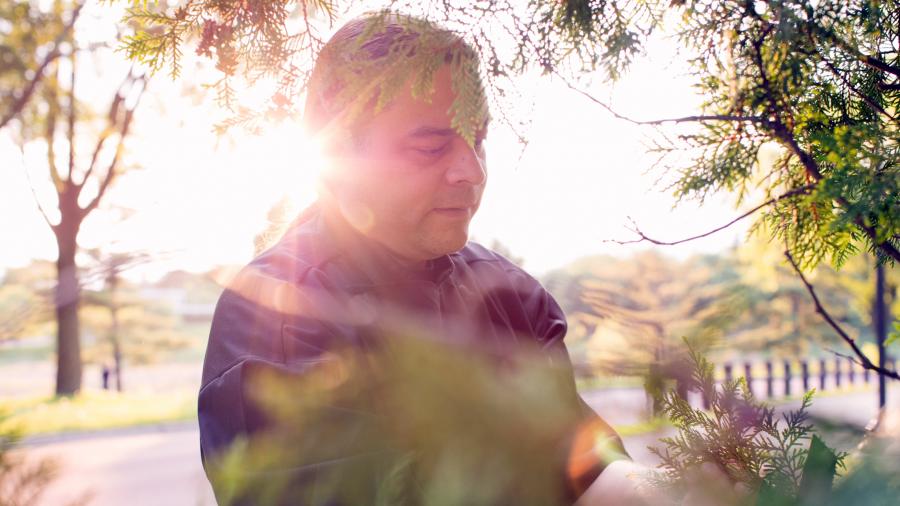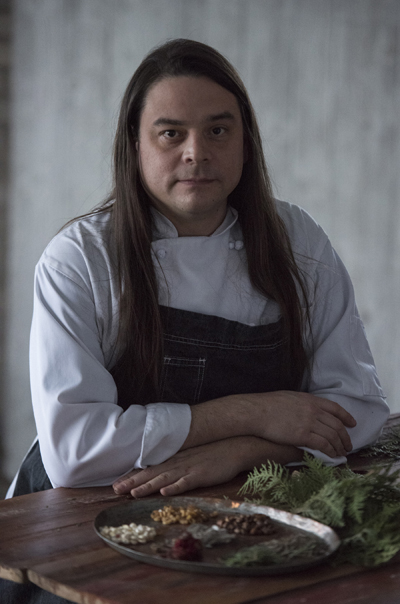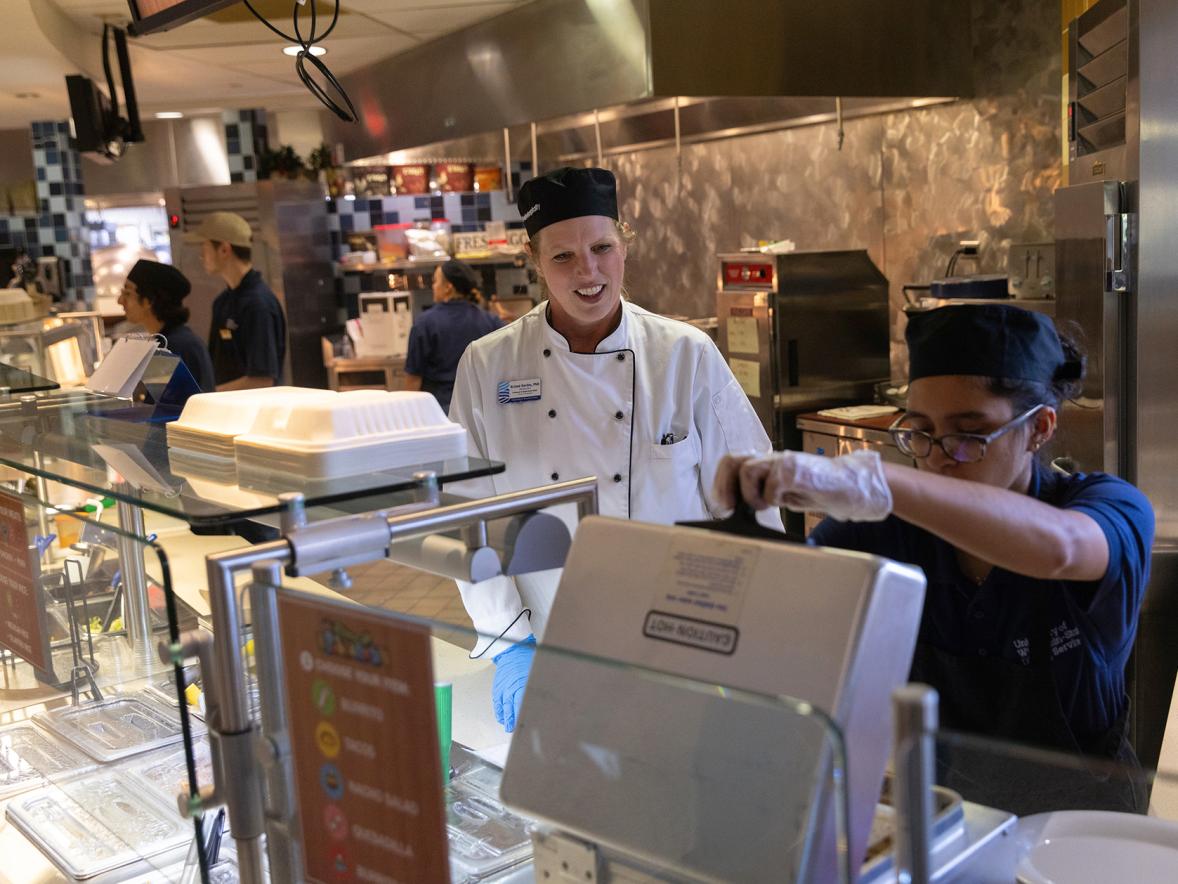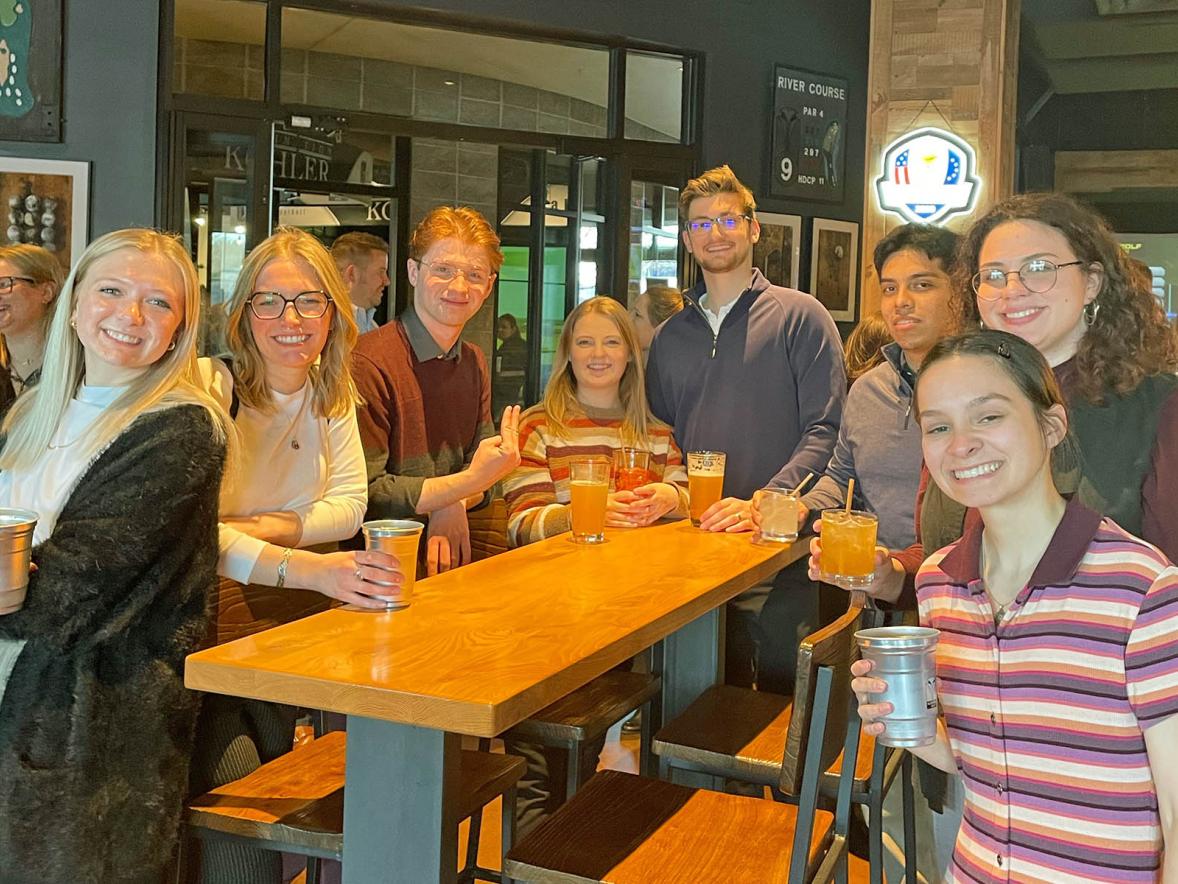
Sean Sherman, author of “The Sioux Chef’s Indigenous Kitchen,” will speak and provide a cooking demonstration at 6 p.m. Thursday, April 5, in room 208 of Heritage Hall at UW-Stout.
The event, titled Decolonize Your Diet, is free and open to the public. Heritage Hall is at 415 10th Ave. E. A meet-and-greet with herbal tea will begin at 5:30 p.m., and refreshments also will be provided after the presentation.
The book, written with Beth Dooley, was published in 2017 by the University of Minnesota Press and recently was nominated for a prestigious James Beard Award in the American cookbook category.
Sherman is an Oglala Lakota who grew up on the Pine Ridge Reservation in South Dakota. He has been cooking around the U.S. and world for more than 30 years and in 2014 opened the Sioux Chef catering and food education business in the Twin Cities, with a restaurant planned in 2019. His focus is revitalizing “awareness of indigenous food systems in a modern culinary context,” according to the Sioux Chef website.
 He has studied the foundations of Native American food systems, including farming, foraging, harvesting and cooking techniques “to gain a full understanding of bringing back a sense of Native American cuisine to today’s world.”
He has studied the foundations of Native American food systems, including farming, foraging, harvesting and cooking techniques “to gain a full understanding of bringing back a sense of Native American cuisine to today’s world.”
Sherman has presented at Yale University, Culinary Institute of America, United Nations and James Beard House in New York and Milan, Italy. He has been featured in the New York Times, National Public Radio, Saveur and the Atlantic.
The event is sponsored by the Native American Student Organization, UW-Stout’s Slow Food chapter, Multicultural Student Services and the School of Hospitality Leadership.
NASO aims to promote and instill awareness about Native American culture in the community and at UW-Stout. The organization promotes a welcoming and supportive atmosphere for Native American students.
“It’s important to learn about healthy foods from First Nations People to appreciate sustainable ways of living. Even after colonization, we hold on to our traditional foods as a source of strength,” NASO said in a statement. “Enjoying food and sharing recipes can provide awareness of indigenous people and culture while also examining stereotypes of tribal people.”
Student officials with NASO, and their tribal affiliations, include Ariana Bourdon, of Wausau, Ho-Chunk; Ian McKay, of Minneapolis, Dakota; Synala Smith, of Oneida, Oneida; Jacob Schwitzer, of Shawano, Menominee; and Kenny Waukau, of Menomonie, Ho-Chunk.
Slow Food advocates for good, clean and fair food by making quality food more accessible to all students.
"Food is an ever-changing dialogue, and this event provides all an opportunity to learn from our food history and engage in defining of our food system's future," said Matthew Giguere, UW-Stout instructor in the School of Hospitality Leadership and Slow Food adviser.
The event also will be live-streamed on the Slow Food Facebook page.
###
Photo
Sean Sherman, author of “The Sioux Chef’s Indigenous Kitchen.”







